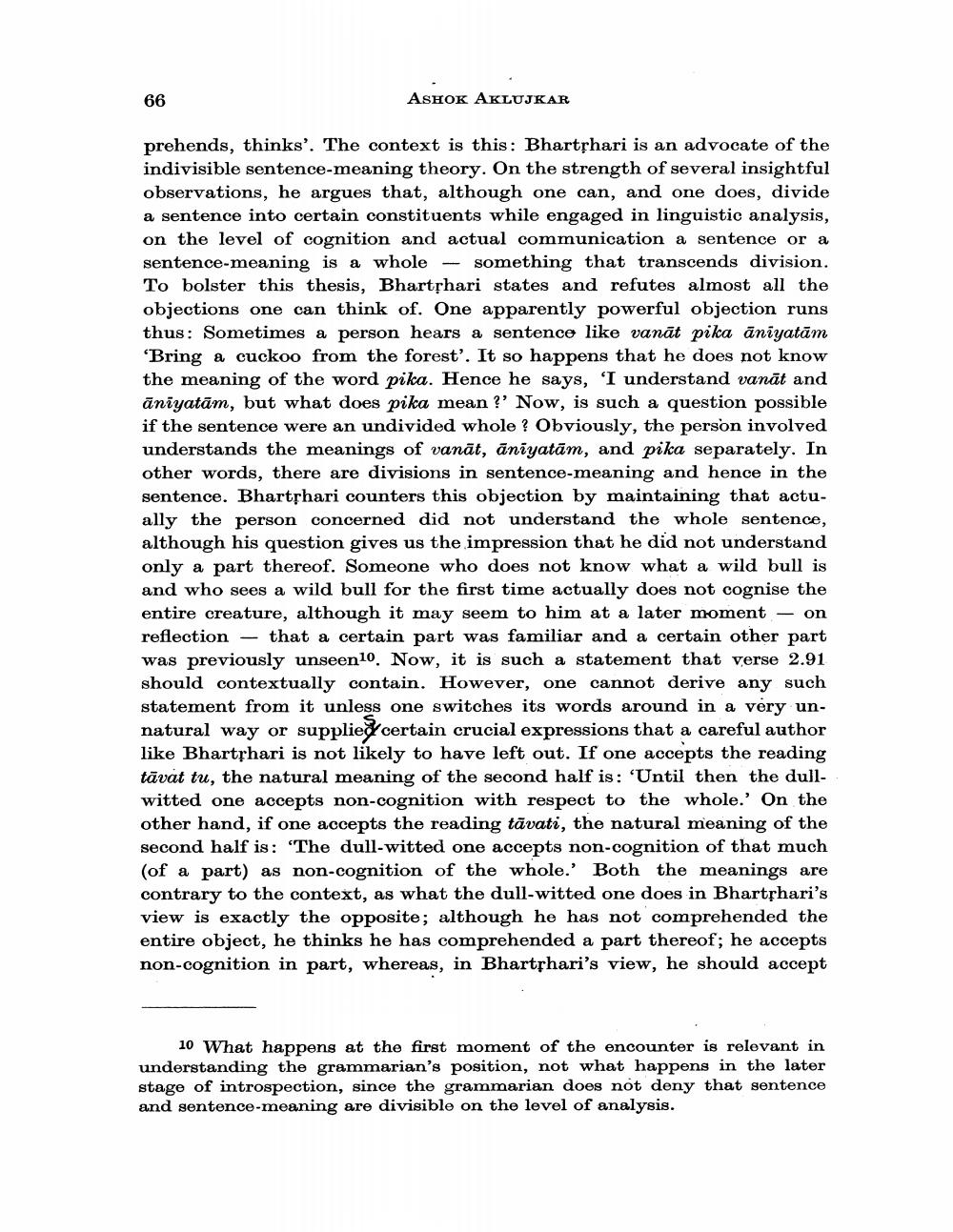Book Title: Emendation Of Some Verses In Bhrtharis Trikandi Author(s): Ashok Aklujkar Publisher: Ashok Aklujkar View full book textPage 4
________________ 66 ASHOK AKLUJKAR prehends, thinks'. The context is this: Bhartphari is an advocate of the indivisible sentence-meaning theory. On the strength of several insightful observations, he argues that, although one can, and one does, divide a sentence into certain constituents while engaged in linguistic analysis, on the level of cognition and actual communication a sentence or a sentence-meaning is a whole - something that transcends division. To bolster this thesis, Bhartshari states and refutes almost all the objections one can think of. One apparently powerful objection runs thus: Sometimes a person hears a sentence like vanāt pika āniyatām 'Bring a cuckoo from the forest'. It so happens that he does not know the meaning of the word pika. Hence he says, 'I understand vanāt and ānīyatām, but what does pika mean?' Now, is such a question possible if the sentence were an undivided whole ? Obviously, the person involved understands the meanings of vanāt, aniyatām, and pika separately. In other words, there are divisions in sentence-meaning and hence in the sentence. Bhartshari counters this objection by maintaining that actually the person concerned did not understand the whole sentence, although his question gives us the impression that he did not understand only a part thereof. Someone who does not know what a wild bull is and who sees a wild bull for the first time actually does not cognise the entire creature, although it may seem to him at a later moment – on reflection – that a certain part was familiar and a certain other part was previously unseen10. Now, it is such a statement that verse 2.91 should contextually contain. However, one cannot derive any such statement from it unless one switches its words around in a very unnatural way or supplied certain crucial expressions that a careful author like Bhartphari is not likely to have left out. If one accepts the reading tāvat tu, the natural meaning of the second half is: 'Until then the dullwitted one accepts non-cognition with respect to the whole.' On the other hand, if one accepts the reading tāvati, the natural meaning of the second half is: "The dull-witted one accepts non-cognition of that much (of a part) as non-cognition of the whole.' Both the meanings are contrary to the context, as what the dull-witted one does in Bhartshari's view is exactly the opposite; although he has not comprehended the entire object, he thinks he has comprehended a part thereof; he accepts non-cognition in part, whereas, in Bhartphari's view, he should accept 10 What happens at the first moment of the encounter is relevant in understanding the grammarian's position, not what happens in the later stage of introspection, since the grammarian does not deny that sentence and sentence-meaning are divisible on the level of analysis.Page Navigation
1 2 3 4 5 6 7 8 9 10 11 12
